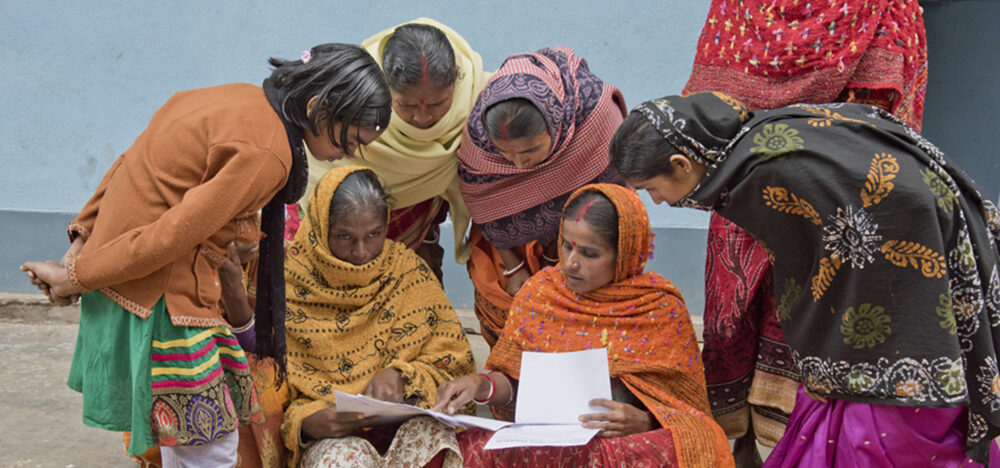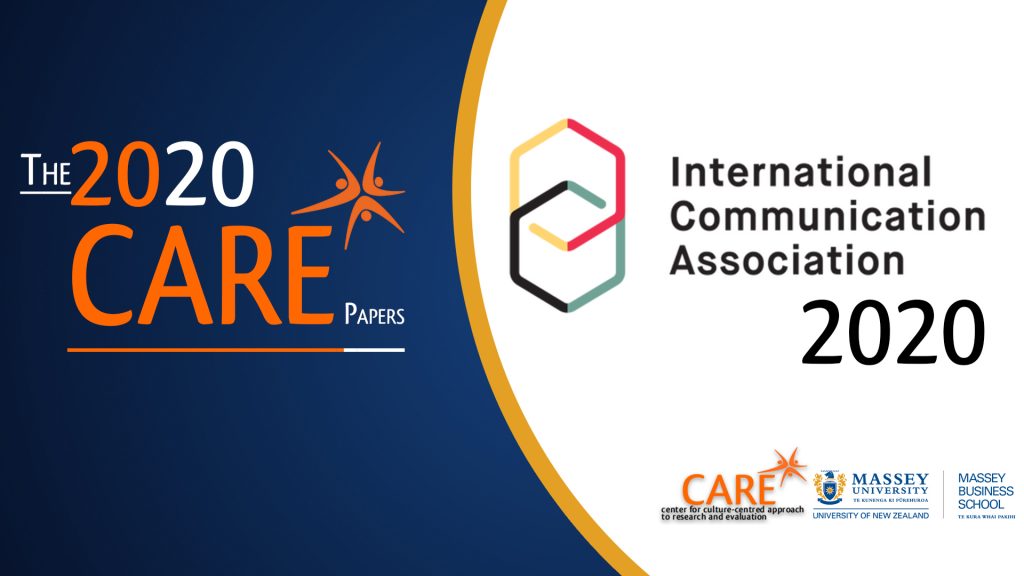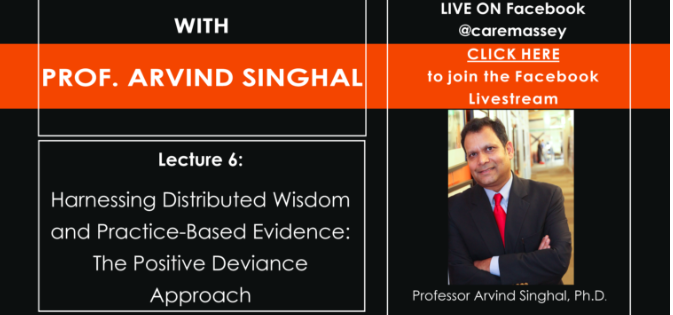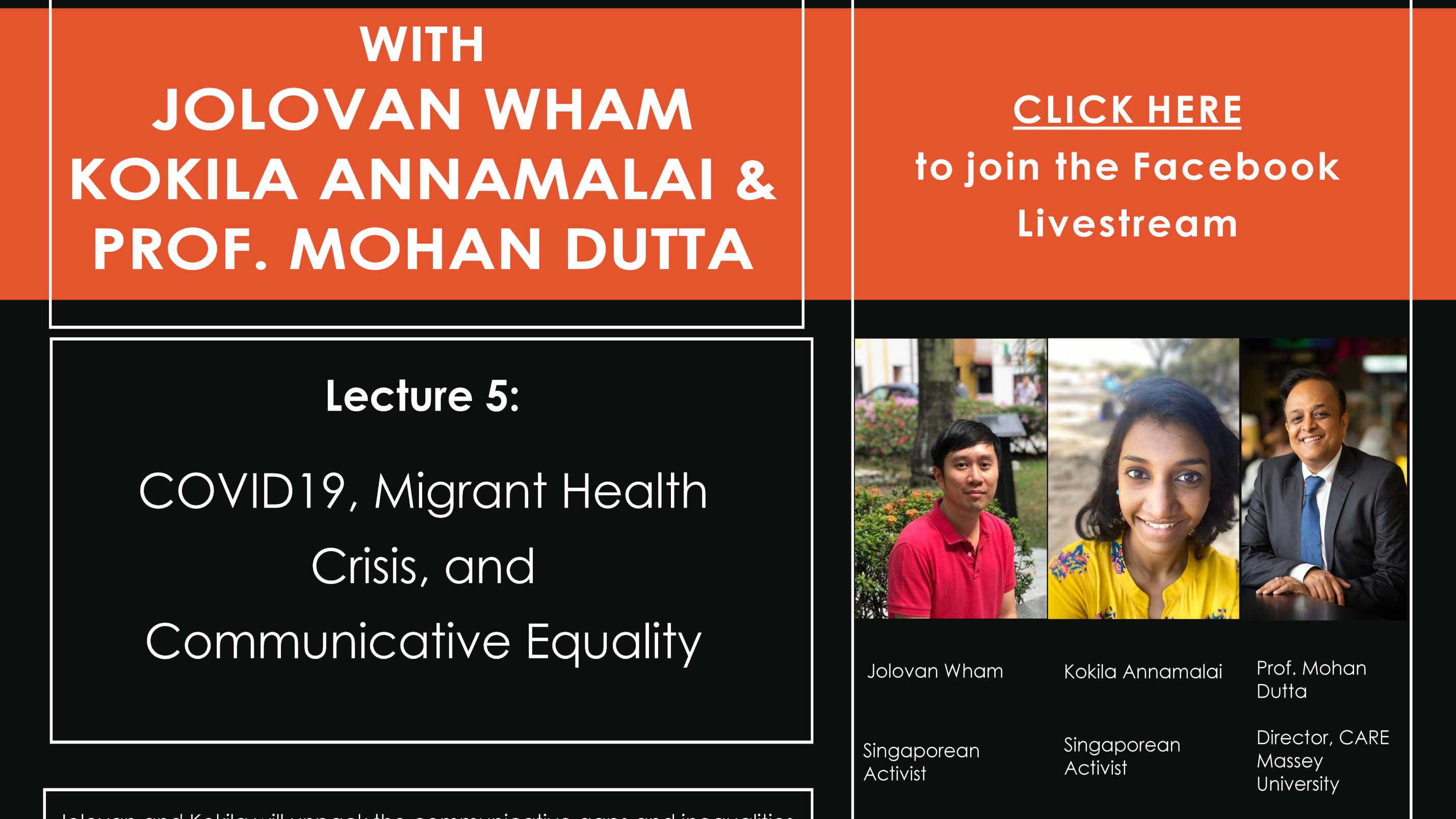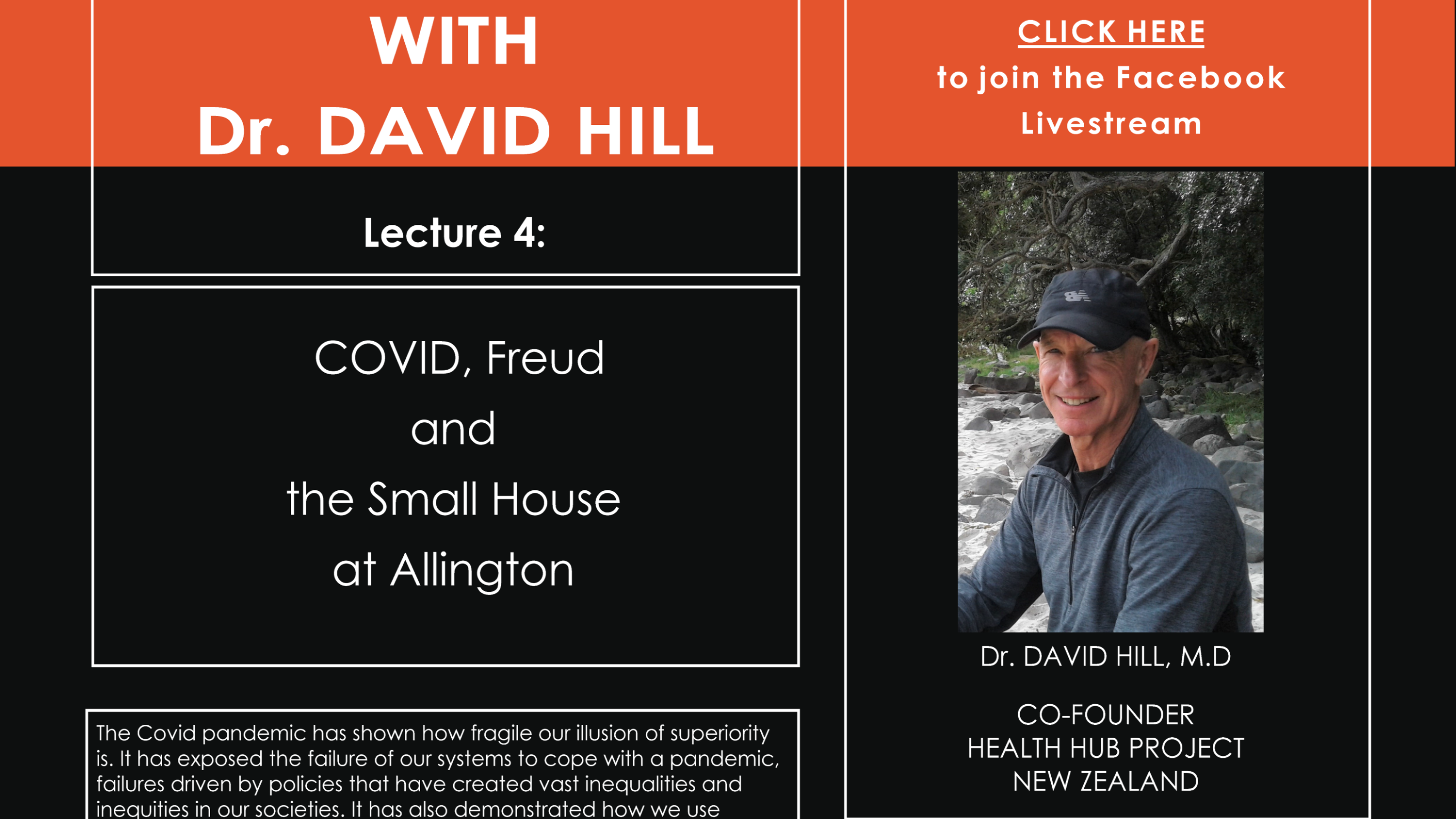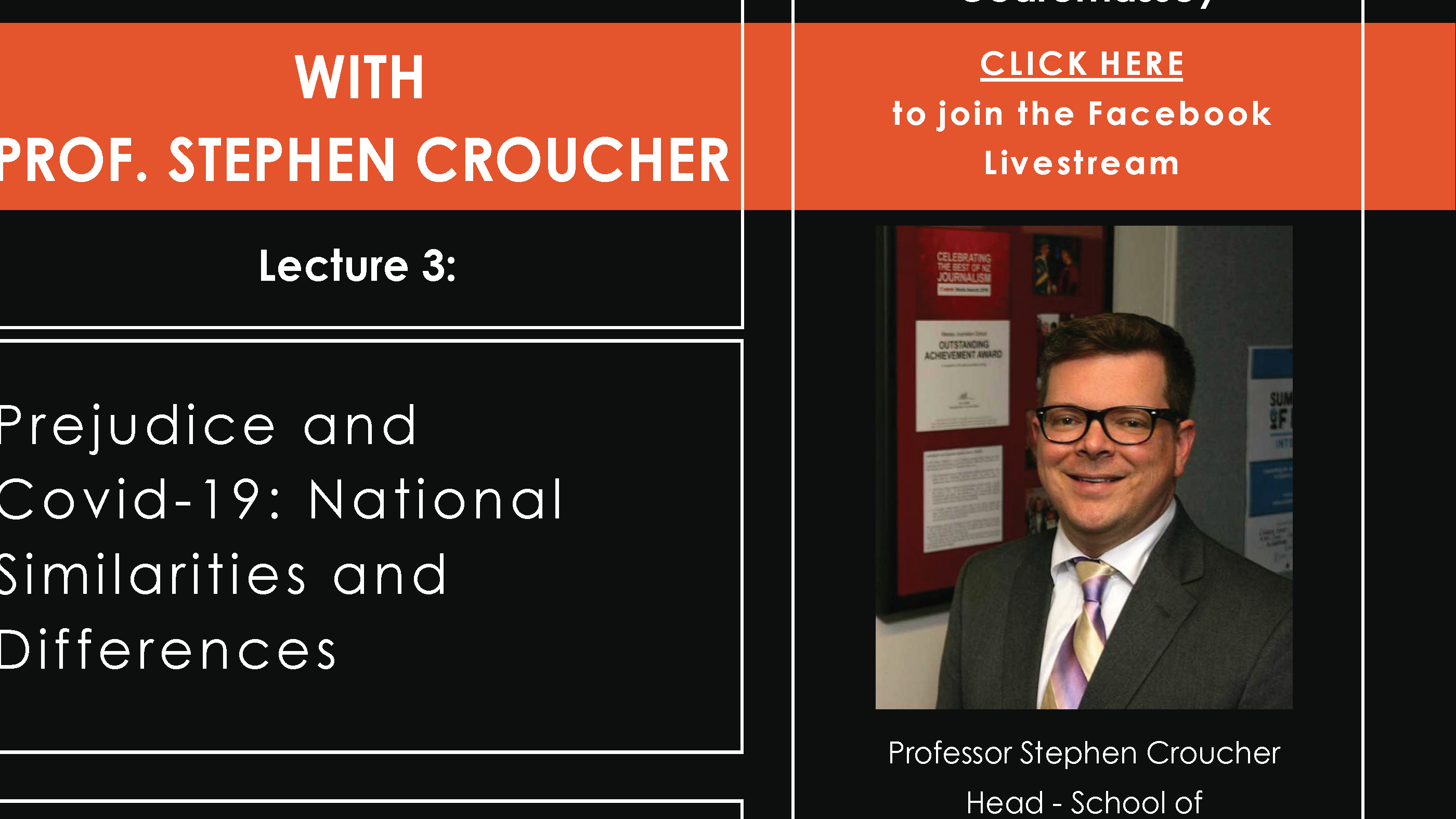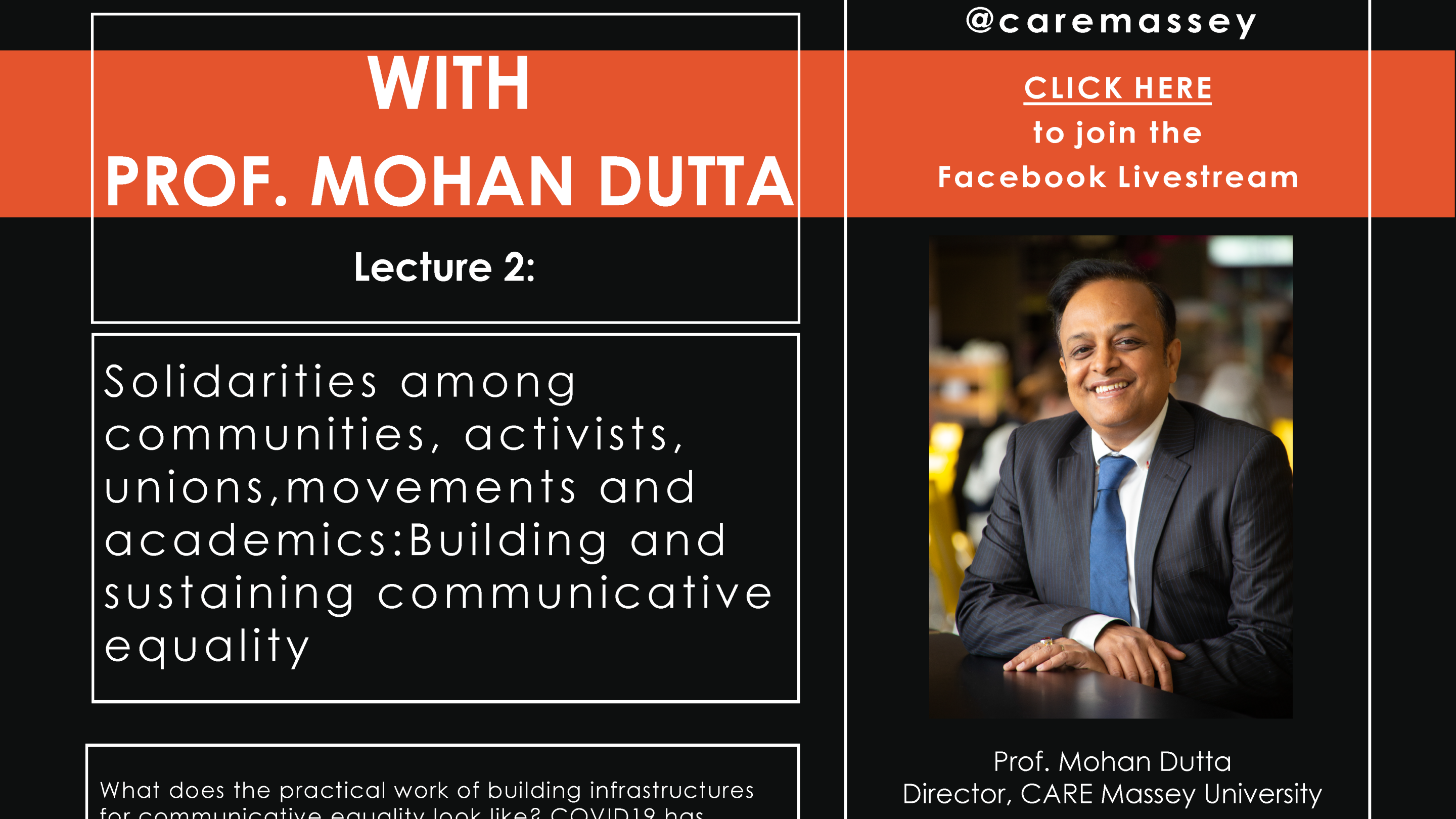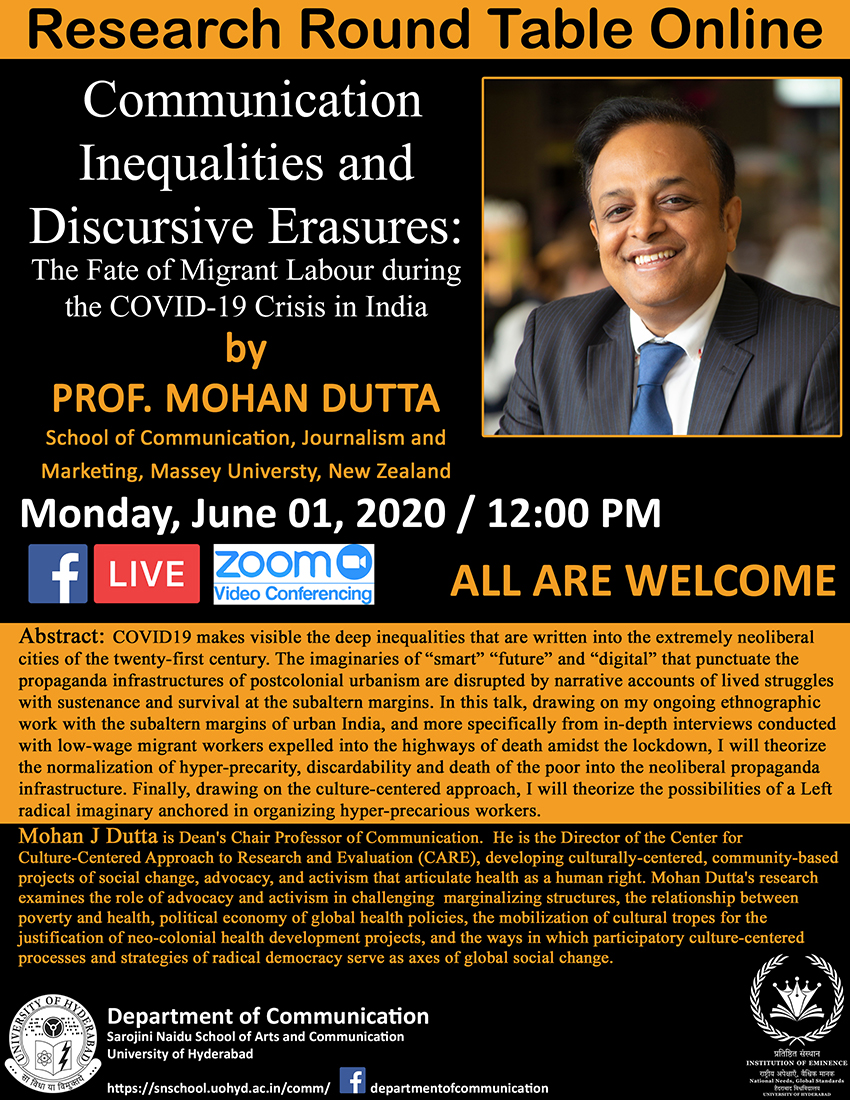
Communication Inequalities and Discursive Erasures: The Fate of Migrant Labour during the COVID-19 Crisis in India
Facebook Event:https://www.facebook.com/events/177930590264625/
Department of Communication, University of Hyderabad presents
Research Round Table Online
Communication Inequalities and Discursive Erasures: The Fate of Migrant Labour during the COVID-19 Crisis in India
by Prof. Mohan Dutta, School of Communication, Journalism and Marketing, Massey University, New Zealand
Monday, June 01, 2020 / 12:00 PM
Abstract: COVID19 makes visible the deep inequalities that are written into the extremely neoliberal cities of the twenty-first century. The imaginaries of “smart” “future” and “digital” that punctuate the propaganda infrastructures of postcolonial urbanism are disrupted by narrative accounts of lived struggles with sustenance and survival at the subaltern margins. In this talk, drawing on my ongoing ethnographic work with the subaltern margins of urban India, and more specifically from in-depth interviews conducted with low-wage migrant workers expelled into the highways of death amidst the lockdown, I will theorize the normalization of hyper-precarity, discardability and death of the poor into the neoliberal propaganda infrastructure. Finally, drawing on the culture-centered approach, I will theorize the possibilities of a Left radical imaginary anchored in organizing hyper-precarious workers.
Mohan J Dutta is Dean’s Chair Professor of Communication. He is the Director of the Center for Culture-Centered Approach to Research and Evaluation (CARE), developing culturally-centered, community-based projects of social change, advocacy, and activism that articulate health as a human right. Mohan Dutta’s research examines the role of advocacy and activism in challenging marginalizing structures, the relationship between poverty and health, political economy of global health policies, the mobilization of cultural tropes for the justification of neo-colonial health development projects, and the ways in which participatory culture-centered processes and strategies of radical democracy serve as axes of global social change.
Meeting ID: 949 6306 7484
Password: rrto@mohan
